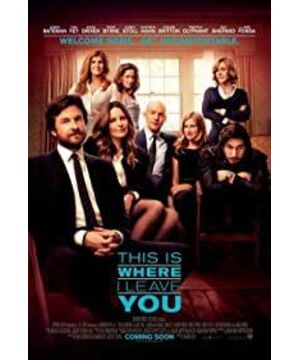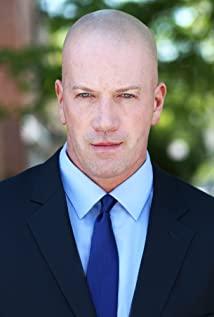The main character is not clear
according to the writer's own words, the protagonist of the entire film is Judd, a whole life to go according to plan but suddenly found their own way of life has been a mistake, middle-aged white males. At the end, it can be seen that the director is trying hard to pull back, because the final place is Judd to find himself, and finally no longer follow the routine. But the whole movie was diluted a lot by his relatives. No balance was found at all. If it's about group play, you might as well let it go. And the film happened to be stuck in the middle. This has something to do with the screenwriter. The author of the original novel is the screenwriter himself and is suspected of not dare to delete it. The unclear directivity caused us to not know whose story it was about after watching the movie. If it's about family, every character is very templated, because space is limited. If it is about Judd, his growth process has not been specifically portrayed.
Father's embarrassing position
is the father. But no one in the film took him seriously, as if he was just taking advantage of his death, everyone went home to tear him up. I can understand this, after all, this is not a story about their father. But at the end, Judd was short-circuited by the wire, thinking of his father, and began to cry bitterly. The screenwriter used this segment to explain Judd's final release. I think it is very opportunistic. There is no dad in the whole film, and when the plot is needed, I will come to a memory to kill, which is too capricious.
Sitcom-like guidance
Although it has a movie-like lens, it is a sitcom when it starts to tear. At the same time, the actors' lines are too slippery and they are very contrived. "Acting is reacting." The convincing performance comes from the natural dialogue between actors, giving people the illusion that the dialogue is happening in real time. But there are a lot of mouth-watering scenes, one punch line followed by another punch line, there is no gap at all, and a lot of naturalness is missing. This is the director's problem. It also has something to do with the screenwriter, because every character is similar to the mouth, once the mouth is started, we can't tell who is who, there is no degree of distinction, and it is suspected of tearing and forcing.
The patchwork of the bridge section has
forgotten who said it. A good movie must have at least six memorable scenes. I remembered at least two of this film. One is Judd and Annie lying on the ice rink, and the other is the three brothers smoking weed in the church. Seen alone, they are all interesting scenes. But there is no penetration at all. Although Judd colludes on the characters, it doesn't feel like a very organic connection. Another example is the hospital torn up the battle. How can the former wife of the green tea bitch be so mentally disabled that he calls the cheating man over, typically without EQ. At first glance, the screenwriter thinks "Oh, we should put together another memorable scene" and arranged it . Because the ex-wife has been apologizing all the time, she has been teary and she has never had the temperament of a green tea bitch. Suddenly, she has green tea here in the hospital. It surprised me and felt cheated. This is probably the source of the sense of patchwork: sacrificing characters for the completion of the plot. For another example, Judd's sister-in-law went crazy on the running bed to seduce him, but there was no preparation, but to serve the brothers again, it was really rolling his eyes.
Rely on music to create texture
I dare say that once the music is removed, the appreciation of the film will drop a lot. This refreshing and healing style is largely created by the soundtrack, because music has the most direct influence on the audience. When the audience doesn't know how they should feel about this scene, they will know how they should feel when you use music. The danger of this is that if the scene itself does not have an emotional core, but only uses music to stimulate the audience's emotions, over time, everyone will find that something is wrong. This is another source of awkwardness after watching this film. Hey, I obviously think it’s beautiful, everything is right. Once the charm of music fades, you will find that there is nothing in the plot and characters that can sustain this kind of emotional momentum, because each character is one-dimensional, remember Can't help.
The conclusion
"Farewell to Seven Days" proves the problems that Hollywood and Chinese films now share. When the level of production becomes more and more professional, when we can easily create a certain film atmosphere with music, photography, scene design, etc., if there is no good humanistic core to match this atmosphere, the film will still make People disappointed. Now that the Chinese film market capital has kept up, it will be sooner or later that it can keep up technically. But if the screenwriter fails to keep up, no matter how good the production level is, there is no way. It's the same in Hollywood. There are fewer and fewer original works, and most of them are novel adaptations because of less risk, but this is not a lasting method. Perhaps the original novel of "Farewell Seven Days" is very appreciative, but as a visual medium, the film has its own narrative language and cannot rely too much on psychological analysis (unless you are Woody Allen). To put it bluntly, you still have to hire professional people to do professional things. Sometimes it is not necessarily the best way to allow the original author to adapt his novel into a movie. Everyone should learn from other people's "Little Sunshine Beauty" and tell stories in a down-to-earth manner, rather than tearing for the sake of force.
Copyright: https://cn.hansonhe.com/this-is-where-i-leave-you
View more about This Is Where I Leave You reviews











